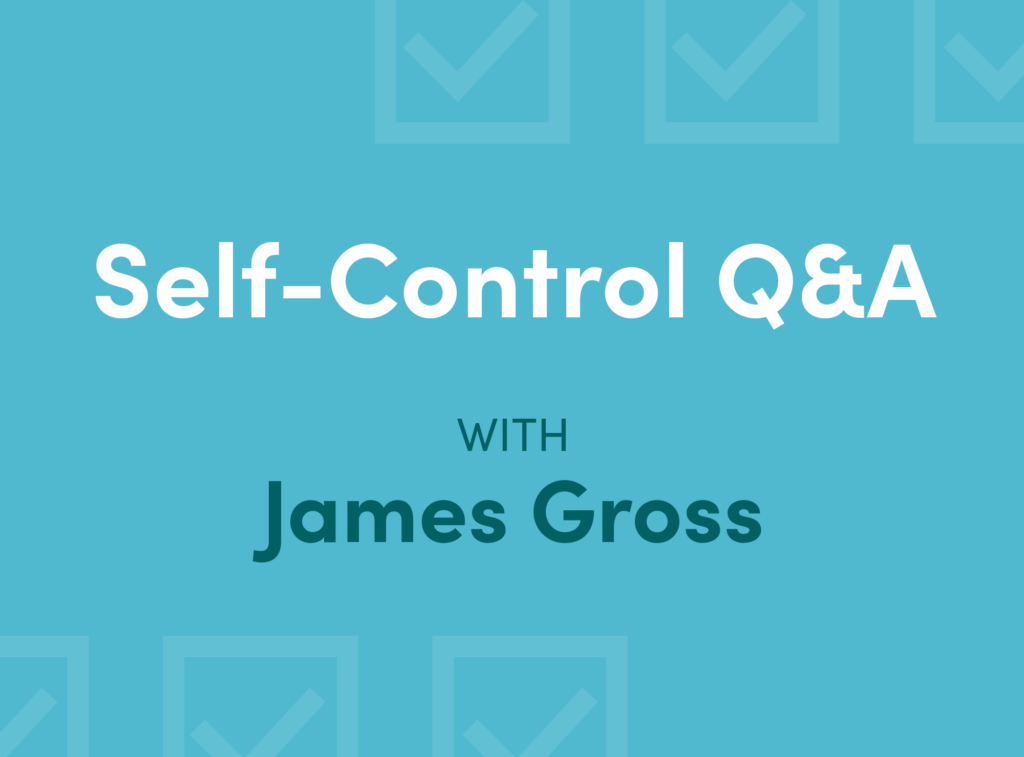
James Gross, a professor of psychology and expert on emotion regulation at Stanford University, talked to us about what parents can do to help teenagers with self-control. Here are a few highlights:
Teenagers sometimes resist input from mom or dad about how to live their lives. Do teens need parents?
Absolutely. A teenager might say, “I’d like to get great grades this term.” But then their behavior isn’t aligned with that. In fact, you may notice they’re doing the opposite of what they need to do to get great grades. Instead of studying, they’re playing video games and texting. They’re staying up too late instead of getting enough sleep. In other words, teenagers, like the rest of us, sometimes self-sabotage: They say they want one thing, but their behavior points in a completely different direction.
What can parents do to help teenagers avoid self-sabotage?
As parents, we can see what’s going on in their lives from a place of clarity. That perspective can be really helpful. For instance, on their own, without you, your son or daughter may not do so well at finding the balance between having fun with their friends, on the one hand, versus studying and being productive on the other.
What are some dos and don’ts for parents trying to help their teenagers achieve their goals?
Don’t get into antagonistic interactions right after school. Instead, pay attention to your own emotions and notice when you’re most likely to be patient and helpful rather than impatient and snappy.
Don’t try to talk about homework or whatever else you know should get done when your kid is telling you how their day went. You’re missing the opportunity for them to open up and really connect with you, maybe tell you about something that they’re upset about. If they’re trying to do that, and you say, “Tell me about your homework,” they’ll think, “Wow, I feel totally unheard. Dad’s getting on my case without even listening to me.”
Do make yourself available. For instance, I literally make sure my home office door is open when my kids come home. An open door tells them I can be interrupted.
What if my kids never bring up their problems?
One practice that my wife and I found to be helpful was to have regularly scheduled check-ins with each of our kids once or twice a week. Basically, we would just have a conversation about whatever was on their minds, whether it was relationships with their siblings or what was going on in school or with their extracurriculars. We’d build an agenda together, like you would for any business meeting.
Let’s say I saw in the school portal that my kid didn’t do well on a math test. My wife and I might say, “Hey, are there some things on your mind that you want to check in about? From our side, it would be really nice to check in on how things are going in math. Our sense is, that hasn’t been the easiest thing for you these past few weeks.”
And then, of course, we really listened. The nice thing about scheduled check-ins is that you’re talking about issues before they become a crisis. As a parent, you want to build routines for talking with your kids about what matters to them and to you.
